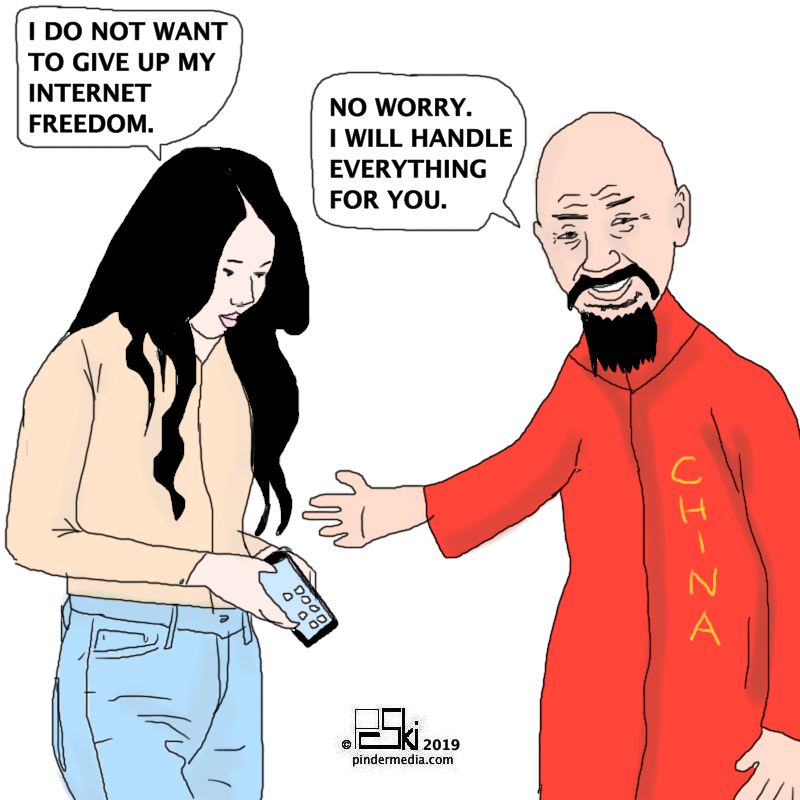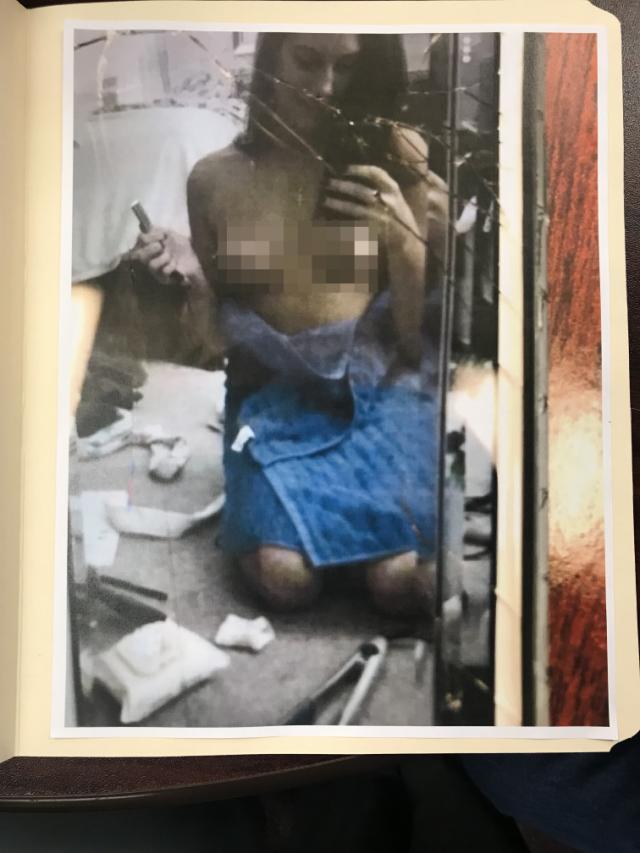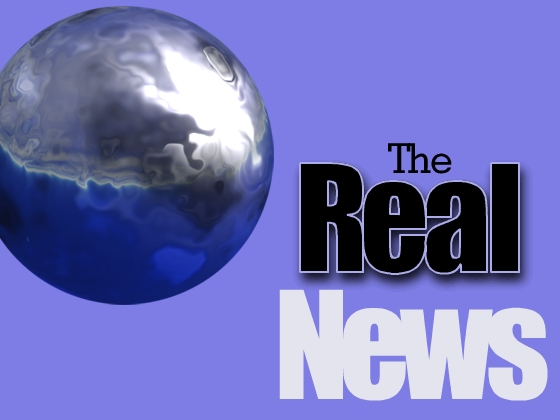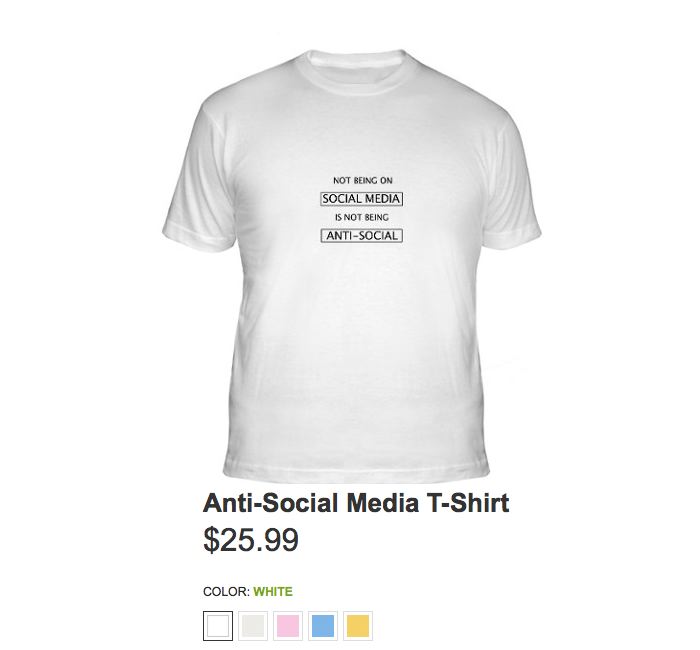|
cyberbarf CENSORSHIP GROWS COMMENTARY Facebook and Twitter have been removing posts or suspending personal accounts for alleged Term of Service violations of posts that are deemed “offensive” speech. The idea that several political cartoonists, whose entire job is to make provocative cartoon commentary on society and current events, have had their account posts deleted is wrong. If you claim the protections of being a neutral platform, you cannot become a publisher/gatekeeper to individual content. In addition, Facebook or Twitter have become the unilateral arbitrators of what is “community” values of speech is dangerous because there is no objective way of sorting speech. The U.S. Supreme Court has held that the First Amendment protects all forms of speech, including offensive content. Twitter platform had been ruled a public forum so President Trump could not block negative comments on his account. It could be argued that Facebook and Twitter are infringing on their user's free speech rights. |
cyberbarf VOLUME 18 NO.9 EXAMINE THE NET WAY OF LIFE MAY, 2019
IN THIS ISSUE:
CENSORSHIP GROWS FOUND BUT NOT LOST ON THE INTERNET FROM BAD TO WORSE WHETHER REPORT
©2019 Ski Words, Cartoons & Illustrations All Rights Reserved Worldwide Distributed by pindermedia.com, inc
|
|
Major corporations such as Apple and Google have been accused of changing their business practices to allow China to censor or limit access to certain information or internet links. China is cracking down on independent thought. It has established a social credit score, where they have begun to assign ratings to each citizen based upon their community status and obedience to the current government doctrine. National censorship is a growing concern for free Internet proponents. Open and free communication has been the foundation of the Digital Age. But governments are trying to severely limit freedoms by regulation. Regulation equals control. And control can lead to punishment for regulatory violations. It can turn the digital public square into a propaganda machine. But it is not just totalitarian regimes that want to control your web life. Reason magazine reported in France, caught up on the fake news in its political elections, President Emmanuel Macron called for controls on online communications but he was recently caught manipulating news for its own ends - - - suggesting that it will look a lot like every other society in history that suffered under self- serving authorities. Reason stated bluntly that censorship continues to be about empowering those in charge. Since taking office, French President Macron has made quite the name for himself as a scold and a censor. Complaining that Russian news outlets smeared him during his presidential campaign with false stories about offshore bank accounts and extramarital gay affairs, Macron vigorously called for new laws and government powers. He proposed requiring websites and social media accounts to disclose their sponsors and give regulators the power to shutter disapproved sources of information. This policy is not new since Macron had already pushed for censorship of video games. He even proposed criminal penalties for whistling at women. Macron is a big believer controlling the message as long it is his message. In November of last year, French lawmakers gave the president what he wanted. Candidates and political parties will now be able to appeal to a judge to help stop false information during the three months before an election. The law also allows the French national broadcasting agency the authority to suspend television channels under the influence of a foreign state if they deliberately disseminate false information likely to affect the sincerity of the ballot. In other words, the existing incumbents can pressure state media to quell opposition rhetoric under the guise of foreign inference in their elections. |
|
The French government also partnered with Facebook in an effort “aimed at figuring out how the European country should police hate speech on the social network,” Politico reported recently. Facebook CEO Mark Zuckerberg is a big proponent of Internet regulation, compliance with which will be relatively simple for his giant company, and which will serve as an enormous hurdle to upstart competitors. In the cry to banish fake news, government leaders like Macron and privateers like Zuckerberg are leading the charge to censor any news or information that is contrary to their goals and personal interests. Facebook has been under fire for its privacy breaches, its data mining users, to being a conduit for Russian meddling in the 2016 election, to promoting politically biased posts on user accounts, to having the personal data of millions of its users misappropriated by consulting firm Cambridge Analytica, to its role in abetting violence against Muslims in Myanmar. In an ABA Journal article, in response, Facebook issued a series of new policies and practices last year to provide more transparency and accountability in how it moderates speech on the platform. Those steps included releasing internal guidelines for enforcing its community standards - - Facebook's public content-moderation rules- -doubling the number of content moderators and reporting on content enforcement actions. But here is where two clearly distinct legal principles collide. Facebook seeks a safe harbor against liability under the DCMA, the centerpiece digital rights legislation, because it states that it is only a platform. Digital platforms are only the access point for individual users to post their individual photos, comments and opinions. A platform does not have any control function over what or how individual users use their accounts. As a result, platforms are given a liability shield against liability such as copyright infringement. But now Facebook wants to do the opposite: control the content posted on the platform. Under the guise of eliminating undefined hate speech, Facebook has changed from a neutral platform to an arbiter of content. By injecting its self into the editorial function of user posts, Facebook has changed its role into that of an editor/publisher of the posted content. As a result, it is no longer just a platform but an actual traditional media company, subject to all legal redress and claims. Facebook CEO Mark Zuckerberg said he would create an independent body to hear appeals of content decisions by Facebook - - either removing or leaving up posts - - and its decisions would be binding. “The purpose of this body would be to uphold the principle of giving people a voice while also recognizing the reality of keeping people safe,” Zuckerberg wrote. But what Zuckerberg fails to realize is that his digital censorship board is no different than re-creating McCarthy era thought police boards whose sole purpose was to weed out and punish individuals who did not think or act in the mainstream. The idea that Facebook is going to be responsible for the safety of people on the platform is a ridiculous argument. The PC culture that has frozen college campuses with trigger zones, censorship panels and fear to express oneself outside the liberal mainstream talking points has crippled institutions of higher education where in the past, an open forum of ideas was the key principle of learning. In 2016, the University of Chicago had enough. It basically told all its students that it was a PC free institution. Free speech meant all speech, including matters an individual could find offensive. The oversight board would uphold community standards. But whose community standards. Facebook is a global platform with 2.8 billion users. Every different country, region, religion has a different set of personal beliefs and community standards. It may be so vague as to give compliance to individual government objections to content shown in their country. It is true that Facebook is a private business so it is not subject to the free speech provisions of the First Amendment. However, as a public platform, it was ruled that Twitter had to respect the free speech rights of commentators on Donald Trump's personal Twitter account. Trump tried to block from his account negative posters, but a court determined that his account was like a public square open to debate the issues and political speech. Again, if Facebook claims to be merely a public platform it has no right to censor comments or posts. If Facebook claims to be a content publisher, then it is a traditional media company who would have to follow the legal principles of slander and libel along with the standards of journalism to avoid liability. Then how would users be classified under the new Facebook content gatekeeper model? Employees creating content for public consumption? Independent contractors? Volunteers who have open diaries publicly posted for the world to see? No, Facebook will continue to see its users as only one thing: big data mining sheep. The Facebook content board and moderators are terrible ideas. If one is offended by a post or comment, then it is up to the individual to look away. If one becomes entrapped in a bitter troll war, one can leave the arena, block the foe or leave the platform. It is really up to the individual to win their own battles, whether they be physical, emotional or intellectual. If anyone thinks that a platform like Facebook, Twitter or Google has their back (and only your best interests at heart) is so naive that even Darwin would blush. NBC News reported that Facebook CEO Zuckerberg oversaw plans to consolidate the social network's power and control competitors by treating its users' data as a bargaining chip, while publicly proclaiming to be protecting that data. NBC received 4,000 pages of leaked company documents largely spanning 2011 to 2015 showed how Zuckerberg, along with his board and management team, found ways to tap Facebook's trove of user data - - including information about friends, relationships and photos - - as leverage over companies it partnered with. In some cases, Facebook would reward favored companies by giving them access to the data of its users. In other cases, it would deny user-data access to rival companies or apps. NBC stated that Facebook gave Amazon extended access to user data because it was spending money on Facebook advertising and partnering with the social network on the launch of its Fire smartphone. But just as evil Facebook can become to its users, Facebook and its peers can be lunch meat for government regulators. The European Union is about to consider a sweeping change in digital rights which would significantly interfere with the free movement of information across the Internet The Electronic Frontier Foundation (EFF) finds the pending EU rules on Internet regulation appalling power grab. It quotes German Data Privacy Commissioner Ulrich Kelber is also a computer scientist, also believes in the potential negative consequences of the proposed new EU Copyright Directive. The Directive and its Article 13 requires that online communities, platforms, and services prevent their users from committing copyright infringement, rather than ensuring that infringing materials are speedily removed. In a new official statement on the Directive (English translation), Kelber warns that Article 13 will inevitably lead to the use of automated filters, because there is no imaginable way for the organizations that run online services to examine everything their users post and determine whether each message, photo, video, or audio clip is a copyright violation. Kelber goes on to warn that this will exacerbate the already dire problem of market concentration in the tech sector, and expose Europeans to particular risk of online surveillance and manipulation. That's because under Article 13, Europe's online companies will be required to block all infringement, even if they are very small and specialized (the Directive gives an online community a three year grace period before it acquires this obligation, less time if the service grosses over 5 million euros/year). These small and medium sized European services (SMEs) will not be able to afford to license the catalogues of the big movie, music, and book publishers, so they'll have to rely on filters to block the unlicensed material. But if a company is too small to afford licenses, it's also too small to build filters. Google's Content ID for YouTube cost a reported 100 million euros to build and run, and it only does a fraction of the blocking required under Article 13. That means only Big Tech giants that have the money and intellectual manpower to police copyrights for non-affiliated parties (such as Disney, who is now the Content Monster after acquiring Fox). In the past, it was up to the copyright holder to police its own intellectual property. By nationalizing the enforcement of private property rights, governments and the EU seize the power to block, suspend and fine any platform or user over what it perceives to be a violation without any due process or accountability. For some, like the EFF, this is the first foot in the door towards a Big Brother oligarchy. |
|
Rock some site MERCH WEAR. Check out our e-Store for current prices, sales and new items!
|
|
|
cyberbarf FOUND BUT NOT LOST ON THE INTERNET
A Long Island New York teacher may sue her school district for her termination. The reason she was fired was that she send a topless photo of herself to her boyfriend. The netizens were perplexed by the firing because 1) it was a private photograph between consenting adults and 2) it had nothing to do with her actual school work (teaching students). How the photo got released may be unknown, but once it reached officials in the school district, a typical contractual morals clause (and possible disruption of classrooms and students and/or parents complaints) doomed the teacher's position. What was lost in the controversy was the background items in the actual picture itself: is that selfie into a broken mirror? Source: Yahoo News
A Dutch artist has created a mural of his favorite books. It makes a stunning streetscape. But does anyone under the age of 20 know what is an actual, physical book in the age of the digital textbook? Source: Neatorama
Third grader Sara Hinesley, 10, who was born in China, said writing is not a problem even if she has no hands. She moved to the United States in 2015 to join her new family. She could only speak Mandarin and write Chinese characters then, but has since picked up English with the help of her 10-year-old sister, Veronica. Her ability to write cursive won the hearts of the judges at the Zaner-Bloser National Handwriting Contest and snagged her the 2019 Nicholas Maxim award. This award is given annually to a participant with a physical, developmental, or intellectual disability. Hinesley writes by holding her pencil between the ends of her arms. She says writing is cursive is like art. This touching story should be a lesson to parents and American school educators who think teaching young children cursive handwriting is too difficult. Source: AsiaOne
|
|
LADIES PJS ON SALE NOW! |
FREELANCE CARTOONS, ILLUSTRATIONS FOR NEWSPAPERS, MAGAZINE, ON-LINE DO YOU CONTENT? CHECK OUT
|
|
cyberbarf FROM BAD TO WORSE KOREAN SCANDAL In last month's issue of cyberbarf, we chronicled the ongoing K-pop scandal that has rocked South Korea to the point of becoming an international story. An assault of a club patron had led to several Korean entertainers becoming embroiled in allegations of illicit taking and distribution of sex videos, drugging women (for sexual assault or rape), solicitation of prostitution (sex-for-third party benefits), police corruption, tax evasion and money laundering. Stories continue to slowly move the stories forward with new, often horrific details. Seungri, who was the focal point of the first stories since he was the point man at the Burning Sun club, has now been accused (along with his partners) with embezzlement of funds and offering prostitutes for overseas investors. The amount of money going through high end clubs was in the millions of dollars per month. High rollers could spend tens to hundreds of thousands of dollars in one night. It appears that these clubs catered to the excesses of the wealthy: alcohol, drugs, and sex. But in a perverse and illegal way. The moral depravity has hit a new low. Victims have been coming forward to confirm the non-consentual taping of sex and sexual assaults while they were drugged or unconscious. Former employees of the clubs have come forward with horrific stories of abuse. One woman told police that she was at a party hosted by the celebrity chat group. She was offered a drink, then she blacked out. When she woke, she found herself naked and bed with several men. She had been gang raped by five men (as allegedly confirmed by the groups chat messages). A pastor had been investigating runaway teens (minors) who would wind up working at these clubs. He stated that he found many examples of abuse. The runaways were lured into prostitution by celebrity or entertainment executives under the guise of getting them into modeling or acting careers. But they were merely disposal objects in the sex trade. The pastor found one young teen so traumatized by it that she showed several symptoms of post traumatic stress disorder (PTSD). Another teen had had so many forced abortions that her uterus had to be surgically removed. A friend of a runaway girl was quoted that after a while, many of these runaways simply go “missing.” An employee of these clubs was interviewed (with his identity concealed) by a reporter. He explained that there are VIP lounges or hotel rooms where VVIPs could go to take drugged women for sexual crimes. He was part of an incinerator crew, a specialized clean-up crew who would go to these VVIP places to get rid of criminal evidence (blood, stains, drugs, syringes, etc.) They would use special chemicals to dissolve blood stains. They would take any physical evidence to dispose of it far away from the district where the club was located to insure no connection to the club. But the most abhorrent story was that he was called to clean up a room, but when he arrived the “party” was still in progress. He saw a man, who looked like a doctor, filming a drugged woman who was in full convulsions due to the fact that her veins were bled out. The man was proud of his near death production and apparently was ready to give the woman a transfusion. There are now allegations that these clubs cater to perversions such as rape, torture and possible snuff films. Slowly, the authorities are arresting individuals for crimes as victims are matching up with the chat room messages. A tangent has been the on-going investigation of drug sales and use in the entertainment/club scene. It seems the hideous meth epidemic has firm roots in South Korean elite culture, as reports are now implicating second and third generation children of the wealthy corporate class. It is so rampant that drug users have dyed their hair and shaved all their body hairs in order to avoid drug tests, but many have failed to fool the authorities. Drug offenses can lead to severe jail time in Korea, as much as 1.5 years for each drug usage. But ketizens are still wanting all the criminal deviants to be publicly shamed and thrown into jail. There is mounting pressure for celebrities to get the full sentence for their crimes (as elite favoritism in society has been a sore spot for the middle class). This scandal has not helped the perception of Korean life. The nation is facing a real population crisis. In 2018, its national birth rate plunged to 1.05. Marriages have declined by double digits annually for the past few years. When a book is published about women being independent, the male comment response is extremely negative against any feminist discussion. Korea still has a hard patriarchal structure. As these scandals indicate, some portions of Korean society do not consider women even as second class citizens but disposal meat in an illicit sex market. It is now understandable why some Korean actresses in their 20s and 30s state in interviews that they are solely focused on their careers; they have not time to date; and that they would spend their off time SNS or staying at home with their friends. Perhaps it is an open secret in entertainment circles that male celebrities cannot be trusted as clubs/entertainment venues are dangerous places for young women who are merely considered as prey. The arrests of certain individuals have not yet gone to formal trial. The Korean justice system has been criticized for being extremely slow but final judgment has been reserved on how judges will sentence the guilty.
|
|
|
 |
 |
|
cyberbarf THE WHETHER REPORT |
cyberbarf STATUS |
|
Question: Whether the Mueller report will stop the impeachment process? |
* Educated Guess * Possible * Probable * Beyond a Reasonable Doubt * Doubtful * Vapor Dream |
|
Question: Whether Galaxy Fold bendable screen issues correctable? |
* Educated Guess * Possible * Probable * Beyond a Reasonable Doubt * Doubtful * Vapor Dream |
| Question: Whether future historians will look back at our current Digital Age as the downfall of our civilization? |
* Educated Guess * Possible * Probable * Beyond a Reasonable Doubt * Doubtful * Vapor Dream |
|
LADIES' JAMS MULTIPLE STYLES-COLORS $31.99 PRICES TO SUBJECT TO CHANGE PLEASE REVIEW E-STORE SITE FOR CURRENT SALES
|
PRICES SUBJECT TO CHANGE; PLEASE CHECK STORE THANK YOU FOR YOUR SUPPORT!
NEW REAL NEWS KOMIX! SHOW HACK! |
 |
cyberbarf
Distribution ©2001-2019 SKI/pindermedia.com, inc.
All Ski graphics, designs, cartoons and images copyrighted.
All Rights Reserved Worldwide.













